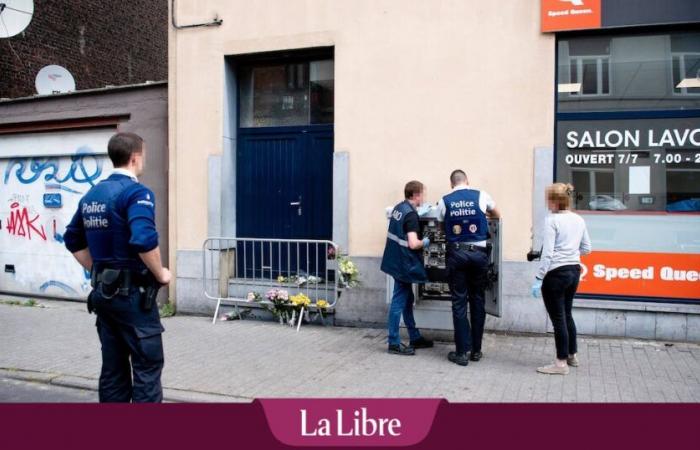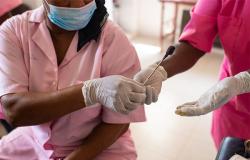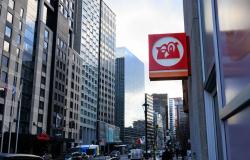This file is exemplary. It shows the tensions, threats and violence that cross this environment where life does not have much value. It sheds light on the way in which this trafficking works, as investigators from the federal judicial police (PJF) and the local Brussels-Midi police explained before the Assize Court.
The investigation showed that the two accused, Mohamed-Amine Dardour, 21 years old at the time, and his right-hand man, Youssef Jeddi, 19 years old, controlled the cannabis trafficking which had been taking place since 2018 on Orban Square. They also organized deliveries of cocaine from an apartment in Etterbeek.
This file is exemplary. It shows the tensions, threats and violence that cross this environment where life does not have much value. It sheds light on how this traffic works.
Dardour and Jeddi initially began selling drugs themselves, around 50 grams per day. They then recruited salespeople. The organization grew and earnings increased. Commerce has become more sophisticated and structured. There were three profiles: manager, watcher and seller.
Manager, watchman, salesman
The manager’s mission – we have identified three in this file – is to collect the goods from the storage locations (an apartment in Etterbeek and another in Anderlecht) and bring them to the place of sale (Place Orban). . In return, these managers recover the money from the sales and bring it back to the organizers.
The role of the spotter is mainly to observe the salesman and check if he is doing his job correctly, if he is working well for the organization.
The seller is the most exposed. Its role is to sit down, wait and sell. There are shifts: noon-6 p.m. for 50 euros, noon-midnight for 100 or 150 euros, depending on police interviews. Sellers explained that they felt watched by the lookouts. There is a high turnover among these sellers because they are regularly arrested.
The sellers were subject to pressure and threats from the two organizers. The latter demanded to see the minutes of the hearings to verify that they had not “dropped” any names. These sellers also explained that they were subject to violence, threats and confinement, particularly when they wanted to stop the sale.
Life sentence required against Dardour and Jeddi, those guilty of the assassination of Soufiane Benali in Forest
Two places of retreat
The organization had two places of retreat, which are also storage places: one in Etterbeek where the money was kept and where the two organizers lived. This is where they managed traffic at Orban Square. This is where the cocaine deliveries will leave. The second apartment, in Anderlecht, was a simple storage place for narcotics.
Every day, the organization sold 100 to 600 grams of cannabis at 10 euros per gram and 5 to 10 grams of cocaine, sold for 40 to 50 euros per gram.
One of the managers explained that upon his release from prison for other crimes, he chose to turn to drug trafficking and then approached Dardour to hire him. Dardour and Jeddi, as the traffic grew, began “to take broad shoulders and lead the high life”he explained. When this manager was arrested, Dardour gave his father 5,000 euros in cash so that he could hire a lawyer. This manager was without illusions: it was so that he would not hesitate.
Arrested a second time and placed under bracelet, he will no longer be able to go to Orban Square. He will rent the second storage location in Anderlecht: the lease was in his name, but Dardour paid the rent and charges. He also says, like sellers, that he was the subject of beatings and threats when he wanted to stop.
The second manager confirmed his work: he brought the “recharges” to “workers” from Orban Square, for 50 to 100 euros per day, for four or five trips per day. He also reported being beaten when he and sellers wanted to stop.
The third manager explained that at the time, he was wanted by the police and that Dardour was the only one who had “opened the door”. He housed him and, in return, he worked for him. He was also the “telephone exchange” for the cocaine leaving the Etterbeek apartment. He received calls on both phones and sent a delivery man to bring the cocaine to the house.
A competitor who enters
But there was a grain of sand in the cogs: Soufiane Benali came to sell cannabis on Orban Square on his own behalf. Which was not to the taste of Dardour and Jeddi, who were armed. There was an incident with a weapon on May 19, 2020. While handling an Uzi submachine gun inside the Etterbeek apartment, Jeddi fired a burst of five ammunition by mistake: impacts will be noted in the blind, the window and its metal upright.
Incidents will break out with Soufiane Benali on the square which Jeddi and then Dardour will try to resolve. Without success. Benali will then be the subject of death threats. To show their determination, Dardour and Jeddi summoned Benali’s brother to the Etterbeek apartment on June 19, 2020 to discuss the situation. During this meeting, Dardour allegedly took the Uzi out of a bag and said, regarding Soufiane Benali: “He wants to go to war? Look what I have.” And Dardour clarified that he was going to kill Soufiane or make him disabled.
The message was clear. Bilal Benali had to tell his brother to stop selling on Orban Square. Soufiane Benali did not take the warning seriously. A new incident broke out on July 2, 2020 at Orban Square. During this fight, Soufiane Benali had the upper hand over Dardour and Jeddi.
For the latter, it was the last straw. On July 5, 2020, shortly after midnight, Soufiane Benali fell under bullets at the intersection of rue Orban and rue de Mérode.






